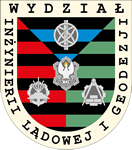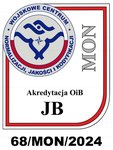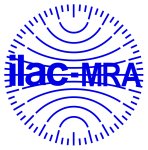The laboratory conducts research in the field of civil engineering, geodesy, and characterization of materials. We specialize in the performance of expert opinions, technical opinions, and material analysis as well as accuracy tests of geodetic instruments. The laboratory conducts research in the field of:
CIVIL ENGINEERING
- corrosion resistance of building elements and materials to the action of salts in high concentration
- aging resistance of building elements and materials to UV radiation
- aging resistance and photostability of building elements and materials to xenon range radiation
- thermal shock resistance of building elements and materials in the range from -70°C to 300°C
- microstructure along with determining the roughness of the surface of large-scale building elements and materials
- creating a distribution and roughness maps of the surfaces of analyzed building elements and materials
- detailed microstructure and chemical composition analysis using SEM EDS techniques for both conductive and non-conductive materials
- TG/DSC decomposition along with the analysis of the composition of visible gases using a mass spectrometer
- determining the percentage share of particles present in the structure of the material or building element
- impact resistance of building elements and materials in the range from 0-750J
- concrete mix and hardened concrete
- compressive and bending strength
- concrete density
- water penetration under the pressure
- water permeability of concrete
- concrete absorption
- concrete frost resistance
- non-destructive determining the compressive strength and the modulus of elasticity
- determining the size and distribution of air pores in the hardened concrete
- rheology of cement mixtures, liquid additives to building materials, and characteristics of the hysteresis of substances
- structure of building materials using optical and scanning methods
- particle size distribution with visual and geometric analysis of their surface
- Zeta potential distribution of particles
- prototyping of manufactured structures using 3D printing techniques
- influence of temperature on the properties of building materials
- determining the beginning and end of the setting time of materials used in construction
- determination of the heat physics of insulating materials
- determining the temperature distribution with the use of thermal imaging methods
thermal characteristics of building partitions
GEODESY
- calibrating the angle and distance with an external rangefinder base – measuring the accuracy of geodetic instruments, in particular in the scope of assessing the actual accuracy offered by a given instrument to verify its correct operation and ensure the highest possible accuracy, by the manufacturer’s specification; the possibility of assessing the accuracy of geodetic instruments in the control of the accuracy of angle and distance measurements
- monitoring of the public regulated service GALILEO (Public Regulated Service – PRS) – a navigation service ensuring better continuity of data reception, especially in the event of interference with external factors, including deliberate
testing and validation of GNSS (Global Navigation Satellite Systems) receivers and research on their resistance to deliberate signal interference; analysis of GNSS receiver sets owned by the armed forces, including GNSS receivers prepared to receive Y, M, and CA codes (the so-called YMCA); this will increase the accuracy and reliability of the navigation infrastructure used by security and defence services and institutions





